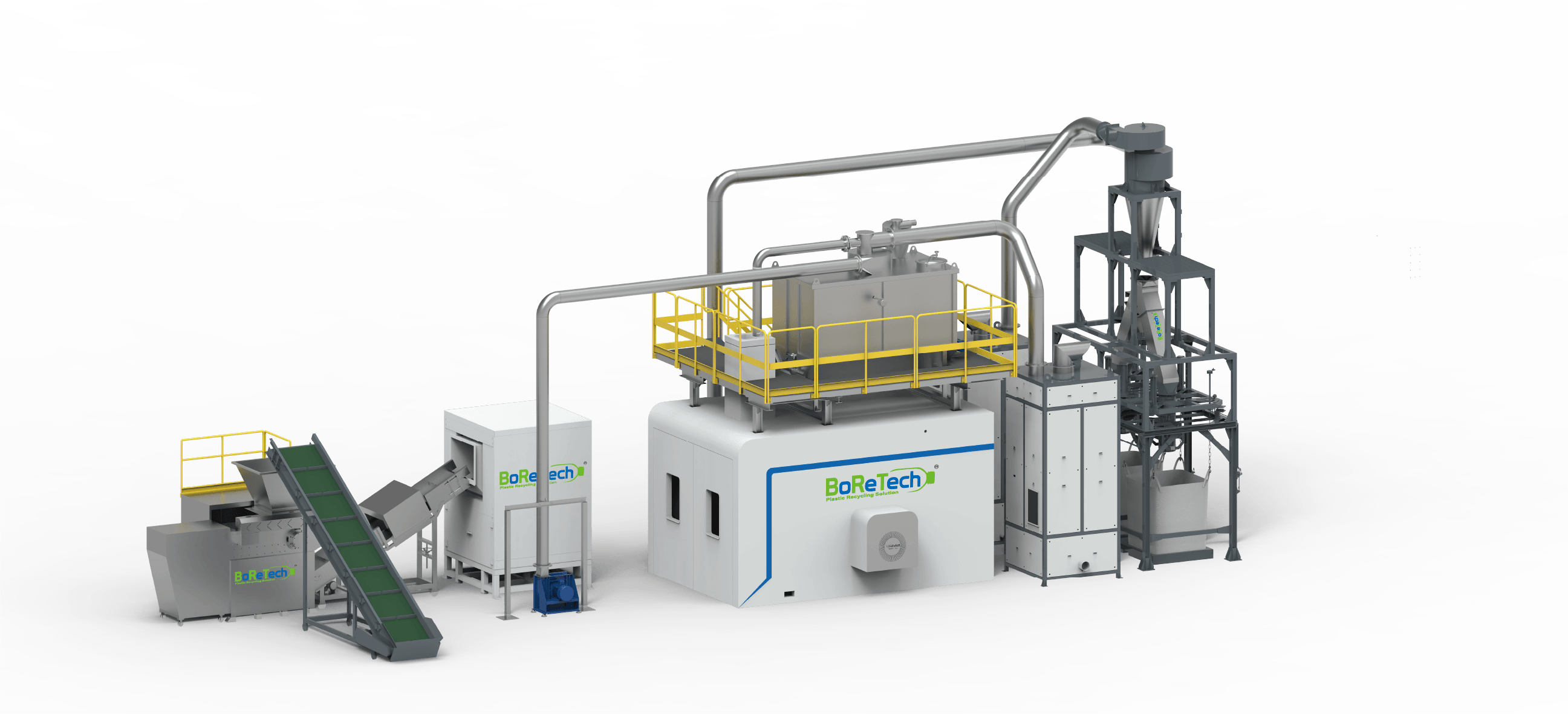Genera Millones en Valor Añadido Anualmente
Sistema de Reciclaje de Residuos de Fibra
Antecedentes
01 Pérdidas por Costos de Materia Prima
En la producción de hilatura de fibra de poliéster virgen, se generan residuos debido a parámetros de proceso inestables, acciones incorrectas del operador, fallos en equipos o cambios de línea de producto. Por ejemplo, una empresa con una producción anual de 100,000 toneladas y una tasa de residuos del 1% (promedio del sector) puede reducir la pérdida de materia prima en 1,000 toneladas utilizando el sistema FRS300 de Boretech, añadiendo millones en valor anualmente.
02 Restricciones Regulatorias en la Gestión de Residuos
Según el Reglamento General de Gestión de Residuos Sólidos Industriales, los residuos deben registrarse como "residuos sólidos industriales", incrementando los costos logísticos en un 15%-20% debido a los requisitos de documentación de transferencia. Una eliminación inadecuada puede resultar en multas de 50,000 a 100,000 RMB por incumplimiento. La actualización 2025 de los Estándares de Evaluación de Fábricas Verdes para la Industria de Fibras Químicas exige una tasa de utilización integral de residuos ≥95%.
03 Limitaciones de las Tecnologías de Reciclaje Tradicionales
Los métodos de reciclaje físico requieren fusión a alta temperatura, provocando degradación oxidativa y una producción de baja calidad no apta para reciclaje en el mismo grado. Adicionalmente, estos métodos consumen significante electricidad y generan grandes volúmenes de gases y aguas residuales, resultando en altos costos de reciclaje.
Características
Elimina la acumulación de residuos mediante reciclaje in situ y en tiempo real.
Reduce costos a través de ciclos autosuficientes. Para una línea de producción anual de 100,000 toneladas con 1% de residuos, añade millones en valor.
El proceso no genera aguas residuales, ni emisiones, y es de bajo consumo energético, evitando los problemas de degradación y amarilleamiento asociados con los métodos tradicionales de conversión de residuos a escamas.
Apoya los objetivos ESG corporativos y la fabricación verde con cero emisiones.
Descripción
El FRS300 es un sistema integrado y completamente automatizado que procesa residuos de poliéster mediante trituración, peletización y molienda fina, produciendo polvo de PET con un tamaño de partícula de 0.3-1 mm. Todo el proceso emplea tecnología de bajas temperaturas, preservando las propiedades del material y permitiendo el reciclaje en el mismo grado, sin generar aguas residuales ni emisiones gaseosas.
El polvo de PET reciclado se mezcla con PTA y se somete a esterificación, pre-policondensación y policondensación final para producir masa fundida de PET de la misma calidad que la polimerización basada en PTA virgen, logrando un sistema de reciclaje de circuito completamente cerrado para residuos de poliéster.
Este sistema está personalizado para empresas productoras de fibra sintética virgen. Mediante procesos innovadores, convierte instantáneamente los residuos de producción en polvo PET+ de alta calidad, que se reintroduce directamente en las unidades de polimerización CP. Esto logra una pérdida cero en la hilatura de fibras, resuelve los desafíos del desperdicio de recursos y el reciclaje de menor calidad, mejora la competitividad de los productos de fibra sintética y proporciona beneficios económicos y ambientales revolucionarios.
¡Verdaderamente realiza un ciclo de cero pérdidas de "residuo → materia prima → nuevo producto"!
Flujo Central del Proceso
Alimentación → Trituración → Eliminación de Metales → Peletización → Molienda Fina → Eliminación de Polvo → Embalaje
Capacidad de entrada
300 kg/h
Dibujo 3D



